Peace Is Not Just Silence—It Is Resistance
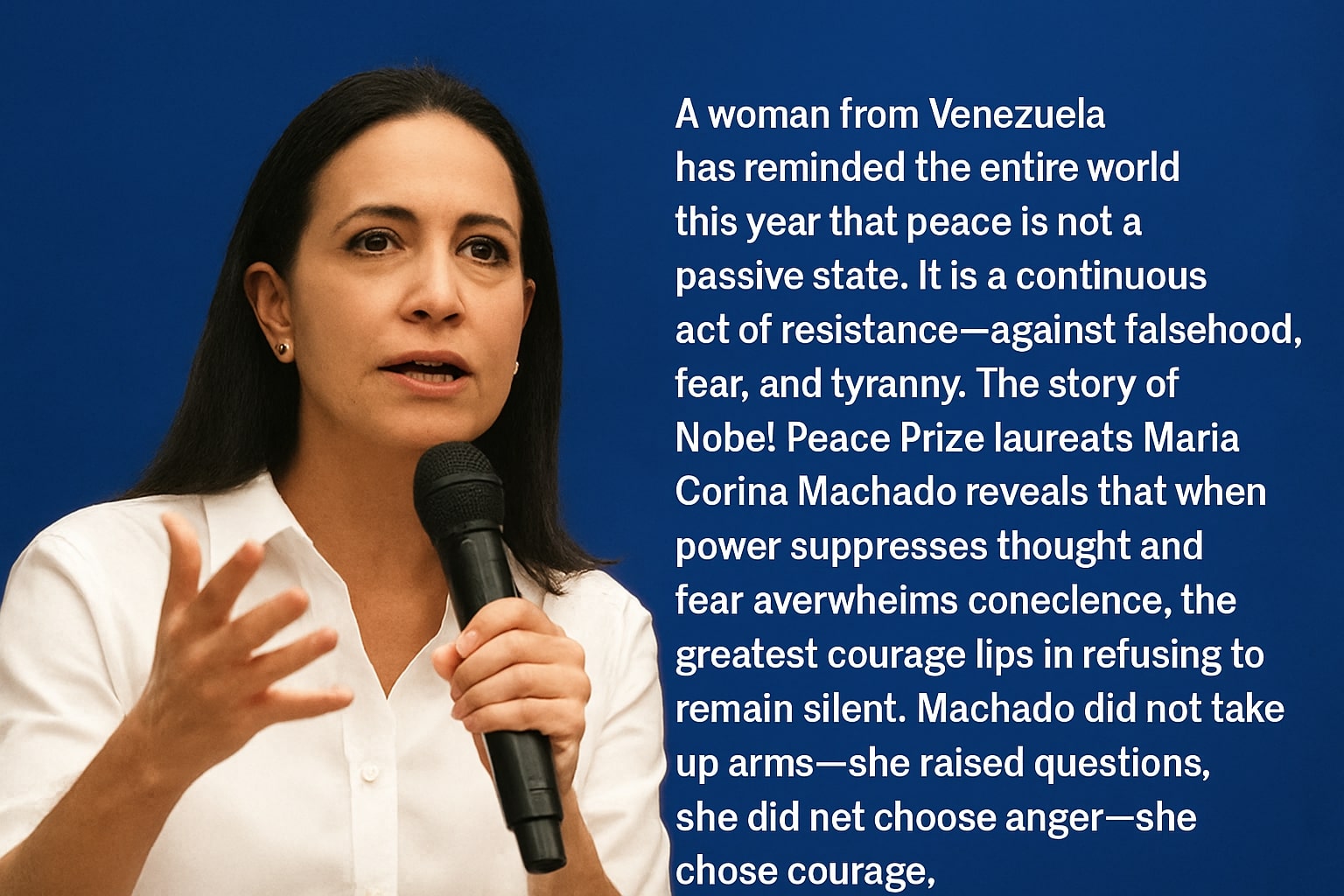
A woman from Venezuela has reminded the entire world this year that peace is not a passive state; it is a continuous act of resistance—against falsehood, fear, and tyranny. The story of Nobel Peace Prize laureate María Corina Machado reveals that when power suppresses thought and fear overwhelms conscience, the greatest courage lies in refusing to remain silent. Machado did not take up arms—she raised questions; she did not choose anger—she chose courage.
When civil rights were being crushed on Venezuela’s streets, the media silenced, and democracy worn thin, María chose truth as her shield. Her struggle was not against a single ruler but against an ideology that sought to turn citizens into mere followers. She transformed peace from passivity into active self-respect. That is why her struggle stands in the lineage of Gandhi’s Satyagraha and Jayaprakash Narayan’s Total Revolution—where peace is not the acceptance of injustice, but a moral proclamation against it.
When María Corina Machado first raised her voice for democracy on the streets of Venezuela, she perhaps did not imagine that one day that very cry would reach the world’s most prestigious stage—the Nobel Peace Prize. Yet her real award did not come from any medal or ceremony; it came from the echo of that voice, which, even amid the roar of dictatorship, chose the path of peaceful resistance. Machado’s story is not merely that of a Western political heroine but of a universal struggle—one that unfolds in every society where power, in the name of the people, begins to frighten the people themselves.
Venezuela was once considered Latin America’s most vibrant democracy. But when power becomes greater than thought, and leaders rise above the constitution, democracy slowly turns into a mask. Under Nicolás Maduro’s regime, that mask concealed an entire machinery of fear, censorship, and control. Opposition leaders were jailed, journalists silenced, and citizens pushed into lines of submission.
In such an atmosphere, María Machado chose dialogue over weapons and trust over violence. She said, “My resistance supports the right of people to think, not any particular person.” That single statement connects her to the tradition of Gandhi and JayaprakashNarayan.
Machado's greatest strength was her ability to not only oppose tyranny, but also to reflect it. She knew that violence might topple a system but cannot sustain a new one. Therefore, she named her movement “peaceful dissent”—the same dissent that Gandhi called Satyagraha and JP called Total Revolution.
At this point, María Corina Machado ceases to be the heroine of one nation; she becomes the voice of a global conscience that insists democracy is not merely a process of voting—it is the soul of citizenship.
If we turn to history, India too once faced a moment when the Emergency shook the very foundation of its democracy. Newspaper headlines drowned in the ink of censorship, and civil rights were trampled in the name of “national security.” It was then that Jayaprakash Narayan declared, “Truth is greater than power, and there is no force greater than the people.”
Today, María Corina Machado’s struggle feels like a revival of that very spirit. The only difference is that the power she stands against is not that of royal palaces, but of digital surveillance, media control, and electoral manipulation. Yet her resolve remains the same—faith in truth and victory over fear.
For India, this moment is also one of self-reflection. Are we preserving the soul of our democracy with the same seriousness that María has shown in hers? When dissent begins to be labeled as sedition and questioning the government as negativity, we must remember Venezuela.
Machado’s struggle is historic in another sense—she has shown that the defense of democracy is not merely a political slogan but a call to moral motherhood. She once said, “I want to see my motherland as a mother sees her child—free, safe, and honest.”
In that sentiment lies the same compassion that has been seen in Indian women—from Champaran to Shaheen Bagh. When a woman takes to the streets, she does not fight against power but against the very idea of injustice. Machado’s calm defiance reaffirms this truth—that democracy is not protected by guns, but by the gentle courage that burns within a woman’s soul.
Though Machado’s struggle unfolded within Venezuela’s borders, its tremors reached the conscience of Indian civil society. Our democracy has deep roots, but its branches are beginning to wither—sometimes in the name of religion, sometimes caste, and sometimes in the arrogance of the majority.
María Corina Machado reminds us that the true measure of a democracy’s health is not its elections but its freedom of voice. And when a society stops listening to its dissenters, it slowly moves toward Venezuela’s path—democracy on the outside, a regime of fear within.
Her struggle also teaches us that real change begins not in parliaments, but in the conscience of the streets. And when a nation loses its capacity to listen to that conscience, no matter how prosperous it appears, it becomes hollow within.
The Nobel Peace Prize may have been awarded to María Corina Machado, but in truth, it honors all those who still dare to question power without violence. It belongs to the Indian youth who raise questions about unemployment, to the journalist who writes the truth against authority, and to the citizen who declares, “The nation is my faith, but the government is not beyond my criticism.”
The Nobel Committee has, in essence, reminded us that the true identity of a democracy is not shaped by its opponents, but by how it treats its dissenters. That is the shared value that unites Gandhi, Nelson Mandela, and now María Corina Machado.
Machado’s victory is far greater than a political event—it is the triumph of a flame that refuses to die, despite oppression, despair, and humiliation. It is the same flame that once burned in JP’s movement, in Mandela’s prison cell, and now, in the streets of Caracas.
This flame reminds us that democracy does not end in an explosion; it dies when citizens fall silent. And it is reborn the moment even a single person finds the courage to say “no.” María Corina Machado said that “no” — with firmness, dignity, and peace.
Today, as democracy across the world undergoes a new test — through the misuse of mandates, the capture of media, and the assault on dissent — María Machado’s voice rises as a beacon of hope. She reminds us that democracy is not merely a system of government, but a state of the soul.
A woman from Venezuela has taught us that no matter how powerful authority becomes, if the spark of conscience and courage still burns among the people, tyranny remains only temporary.
In its statement, the Nobel Committee said that the 2025 Nobel Peace Prize is being awarded to “a woman who kept the flame of democracy alive amid deepening darkness.” The statement describes María Corina Machado as “one of the most extraordinary examples of courage in recent Latin American history.”
The Committee’s chairman said Machado has been a figure of great importance. The statement adds, “Even when we disagree, our shared desire to protect the principles of popular governance is the essence of democracy. At a time when democracy itself is in danger, defending it becomes the most vital duty of all.”
At a time when democracies across the world are losing their moral compass amid the noise of populism and propaganda, Machado’s voice shakes us from within. She tells us that peace is not silence — it is the act of breaking that silence which normalizes injustice.
Machado’s victory is not just that of one nation, but of all humanity — because she has proven that words can challenge power, and that breaking silence is the greatest form of peace-making. Her name will not merely be written in history, but in the memory of human conscience — like a flame born not to burn the darkness, but to illuminate the way.
The Nobel Peace Prize award to Machado is not just as a personal honor, but as a recognition of the invisible courage and persistent democratic spirit against tyranny. Her example is described as a flame that illuminates the path, embodying the faith that democracy survives despite brutal authoritarianism and a shattered economy. Her resistance, the piece argues, is a wise resistance, showing that genuine peace is inseparable from justice and does not mean submission to fear.
This is a powerful declaration for global democracy, especially at a time when authoritarianism is on the rise. Machado's legacy is a reminder that democracy is not a static victory but a daily act of faith renewed by every generation. By keeping the flame of democracy alive on the fear-filled streets of Venezuela, she taught that it resides not only in institutions but profoundly in the hearts of women and the citizens who choose to speak the language of hope over fear.
Author, a Doctor of Laws, is a regular columnist and commentator on political and socio-cultural issues.

 1 month, 1 week ago
1 month, 1 week ago
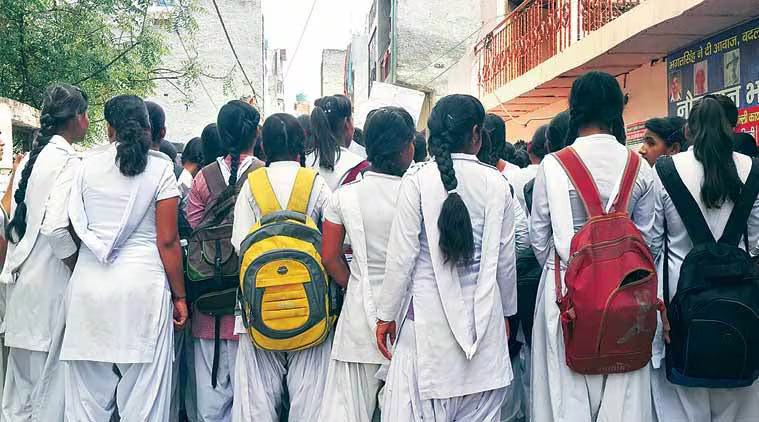
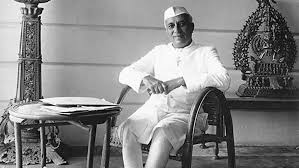

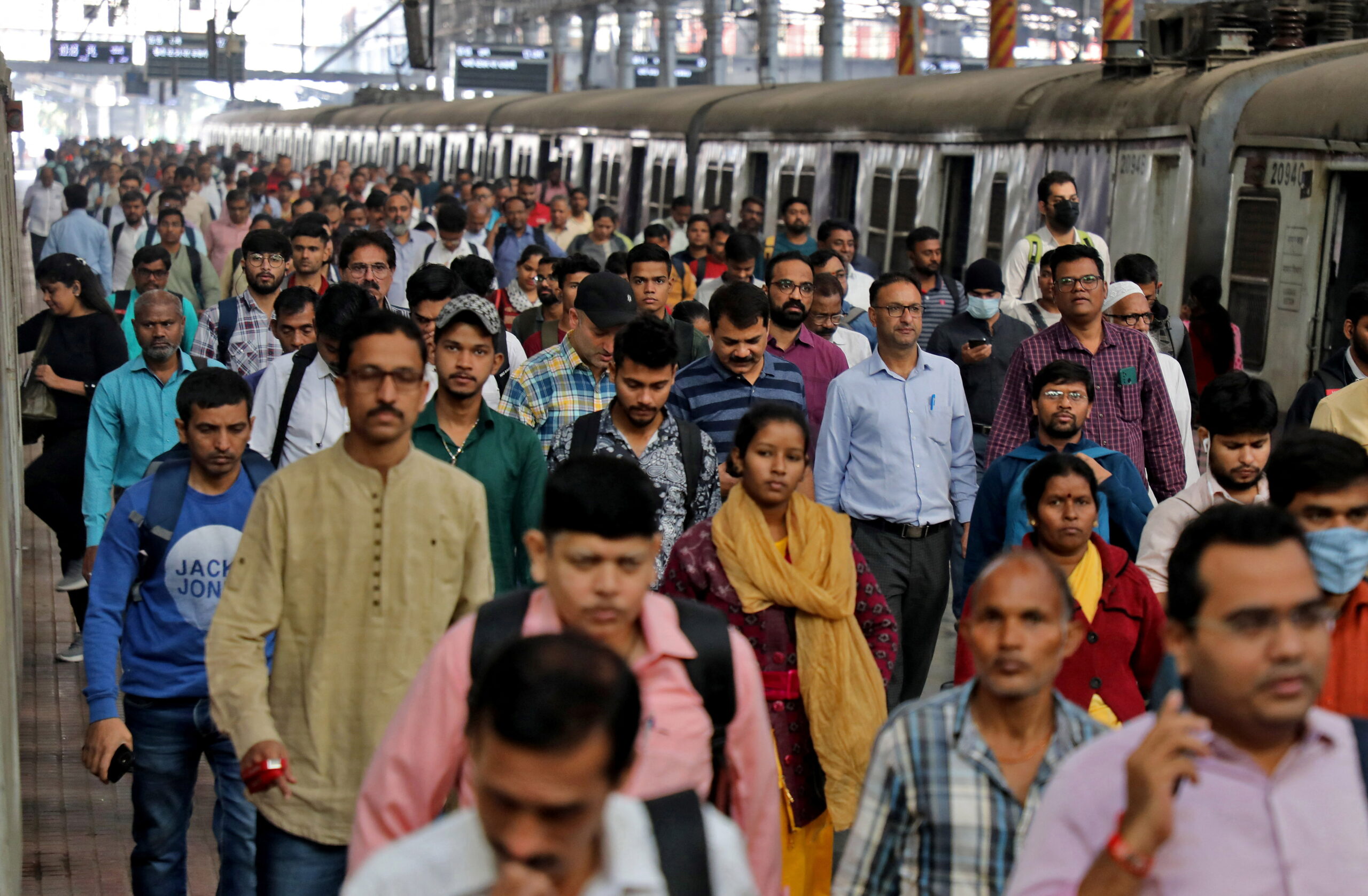

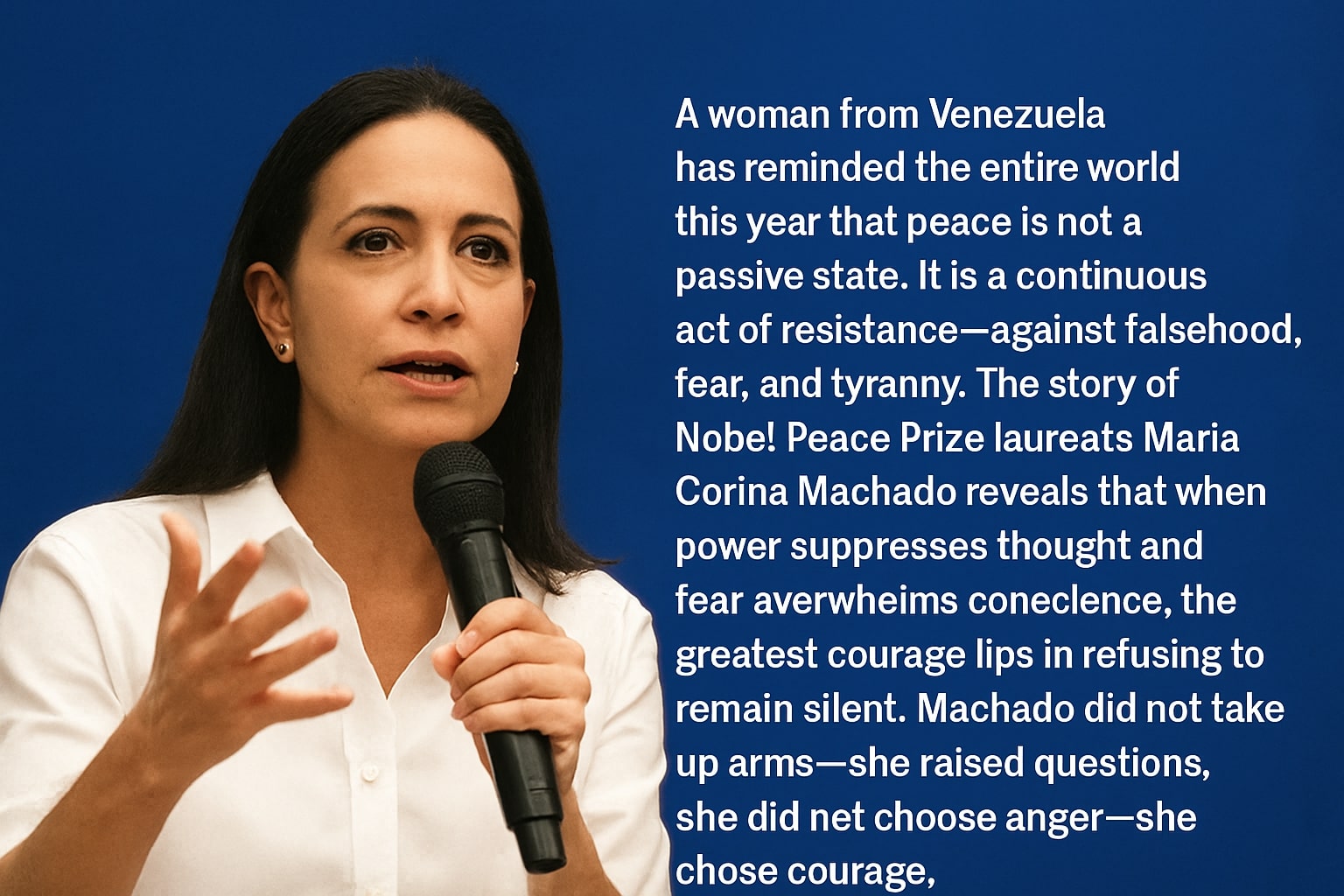

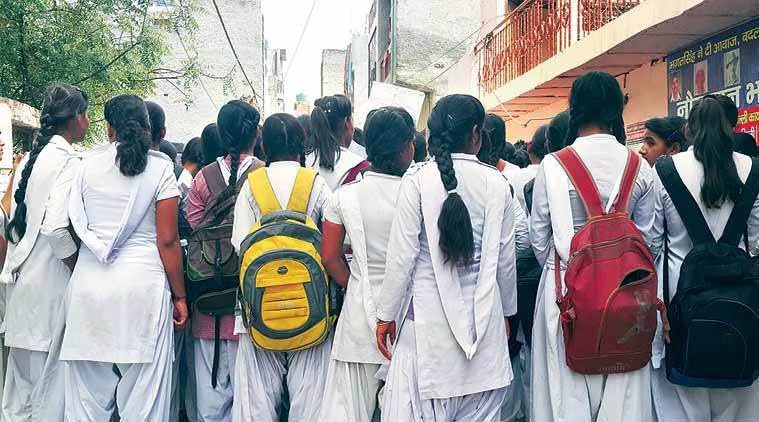


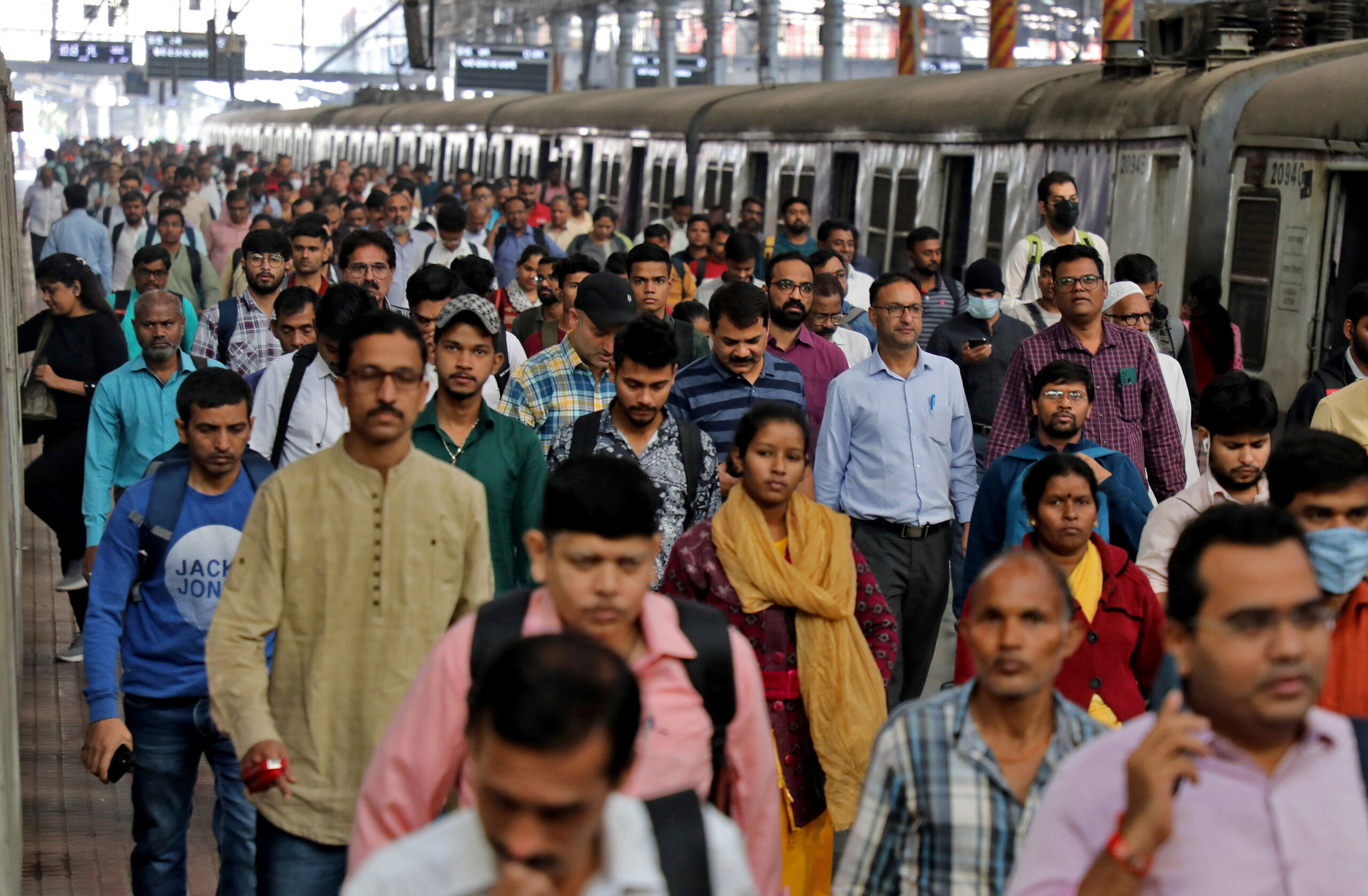
[[comment.comment_text]]